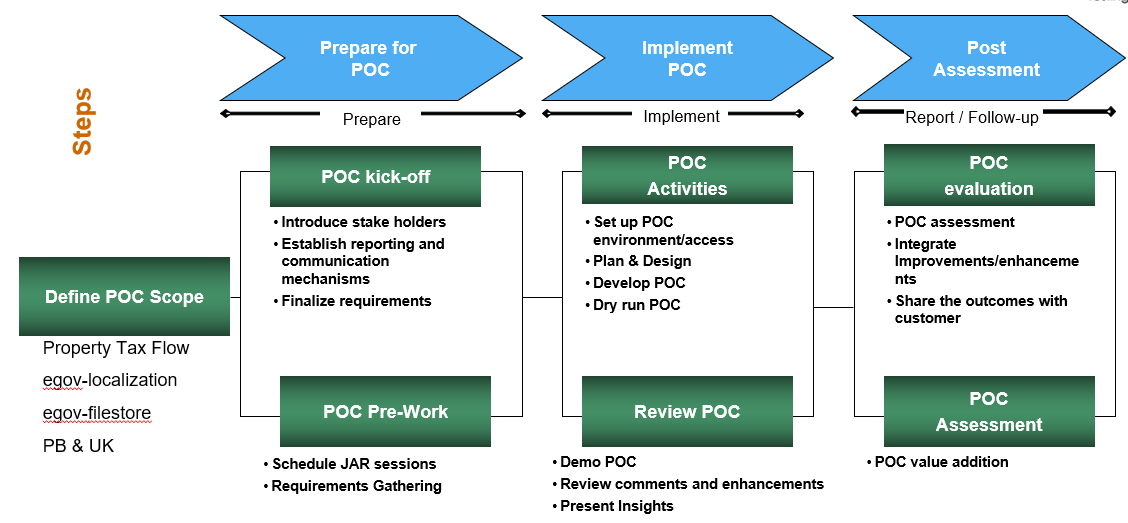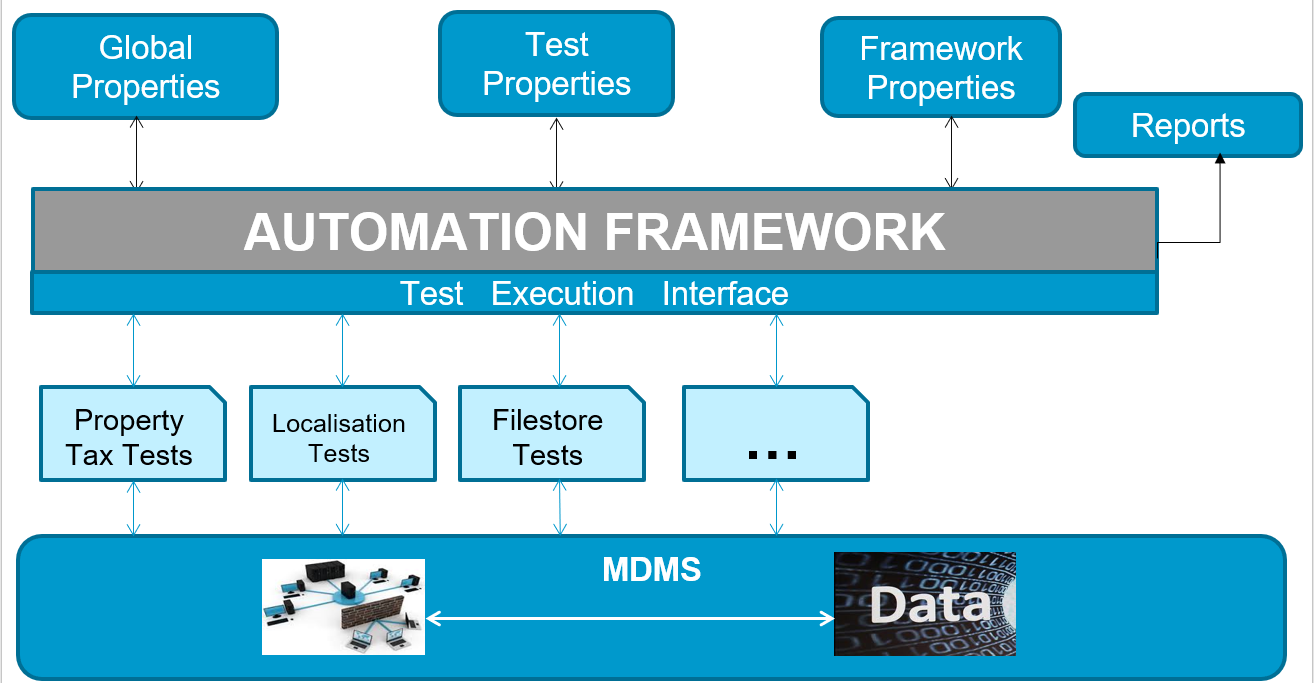Automation Framework Knowledge Base
Problem Statement
Provide an approach on how Consumer and Producer APIs will be tested
POC on below core services to showcase all automation principles and guide
Localisation- Upsert and search call
FileStore- Search File
Property Tax- Create Property
Solution
Design & Implement a Robust Automation Framework.
Build a modular Framework so any future changes are limited to a specific area and do not impact the entire framework.
Goal
Implement a framework that is robust enough to function with minimal changes
The framework handles multi-tenant with only properties update
The framework can switch environments with no manual update
A new environment can be integrated with updates to framework properties
Plan and Outcomes

Automation Framework: High-Level Architecture

Description
Global Properties:
Configuration The only rule is that on start-up Karate expects a file called karate-config.js to exist on the classpath and contain a JavaScript function. The function is expected to return a JSON object and all keys and values in that JSON object will be made available as script variables. And that's all there is to Karate configuration! You can easily get the value of the current 'environment' or 'profile', and then set up 'global' variables using some simple JavaScript.
Global Variables: Non-JSON values such as Java object references or JS functions are supported only if they are at the "root" of the JSON returned from karate-config.js.
Multiple Environment: Karate is flexible and allows users to overwrite the configuration variables within each test script - which is very convenient when in development mode or for rapid prototyping. This also takes care of environment-specific configuration. The external configuration file contains the hostname, credentials, stateCode, cityCode, etc.
Test Properties: Contains all properties related to test cases like feature files, HTTP requests, responses, test data etc.
Framework Properties: Contains all properties related to the Karate framework like pom.xml, YAML files, .md files etc.
Reports: We can generate default BDD cucumber reports and integrate reporting plugins.
Tests: Contains test scenarios feature files with execution tags, assertions etc.
MDMS call: Fetching the test data from MDMS and using it in tests.
Technologies Used
Java
JavaScript
Gherkin
BDD framework - Behavior Driven Development is a software development approach.
Was this helpful?